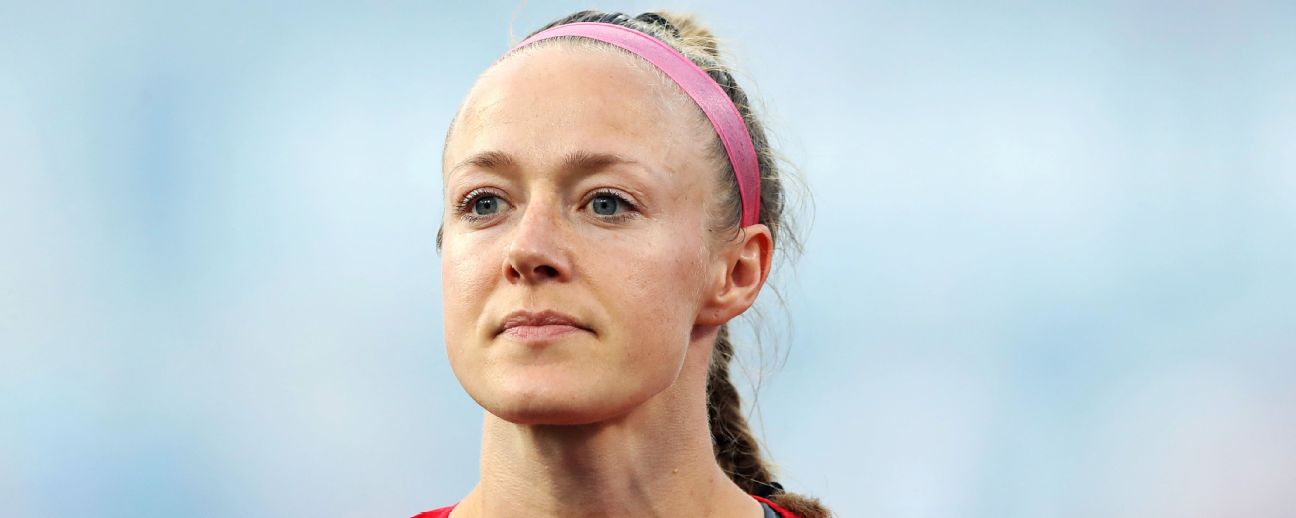USWNT Becky Sauerbrunn will never forget the day she watched Carla Overbeck lead the 99ers to a World Cup title. Now, as she tries to win a second World Cup of her own, she says thank you to the captain who taught her how to lead.
The first time I saw you, I was 14. It was 1999, and my club teammates and I traveled from St. Louis to Chicago to watch the U.S. women’s national team play Nigeria in the World Cup group stage. My friends were into Mia Hamm, Brandi Chastain, Julie Foudy — players with a louder presence — but I was drawn to you. You were understated and subtle. You reflected who I wanted to be.
I never expected that almost 20 years later we’d actually meet. But in 2017, when I was in North Carolina for an NWSL game, a mutual friend set up dinner at an Italian place near where you coach at Duke. I was so nervous. I had posters of you growing up, and suddenly you were at dinner with me, eating pasta and drinking wine alongside two mutual friends. It was totally bizarre but in the most wonderful way.
I was stepping into a leadership position with the national team, and you were captain of the ’99ers, so we talked a lot about learning how to lead. Turns out a lot of the conflicts and concerns you had were the same ones I was dealing with. You helped me realize it wasn’t a unique experience. The hardest part of being a leader is trying to get everyone on the same page about how to reach a goal. We all want to be the best in the world, but it’s difficult to get 23 women to agree on how we get there. I can see people getting frustrated, and I’m always asking myself how I can help everyone put the team first. The best advice you gave me was to accept that I can’t please everyone, to pick my battles wisely and to understand that I can’t lead on my own. Find the people who have your back at all times, you told me. I did, and it helped lift the weight off my shoulders.
One of those people is Megan Rapinoe. I’ve known her since I was 16. Having a friend like her in this high-stakes environment is super helpful. Whether it’s pulling someone aside and finding out what’s going on in her life, or telling her what she’s doing isn’t good enough — that’s out of my comfort level. It’s not natural for me to be vocal or emotional, but I know it’s necessary. The team is making strides in facing up to issues. Before, we were trying to justify criticisms away; now we’re more willing to listen, accept the problem and talk through it.
We also talked about how you were a leader in striking the first collective bargaining agreement with U.S. Soccer that allowed the team to make a living from playing. We wouldn’t be here today if you hadn’t had the courage to boycott a tournament in Australia six months after winning the World Cup until you got better pay and more security for younger players. That’s what we’re building off today with our equal-pay lawsuit. We’re going to continue to close the gap between the men and the women. True success is when there is no difference. That’s when we will have done our job.
You couldn’t come to our ’99ers reunion in April, but I loved listening to your teammates wax poetic about you. Lorrie Fair told me at brunch about a time when you guys had done a terrible training session, and the coach told you all, “Get on the line, we’re gonna do some fitness,” and you just ran and ran. You and your teammates all collapsed on the floor, breathing hard. And then you yelled, “Get back off the floor! We’re going to do some more.” The fact that the girls got up and ran more just shows what a true leader you were. If I tried to do that, the team would mutiny. It was like a scene from a movie in which the women end up chanting, “Carla! Carla! Carla!”
So thank you for being you, for being someone I can text when I need a chat. The ’99ers are the reason I am playing in this World Cup today. I needed inspiration when I was young, and you gave me a goal. It all started with a 14-year-old girl watching that game. — As told to Elaine Teng
